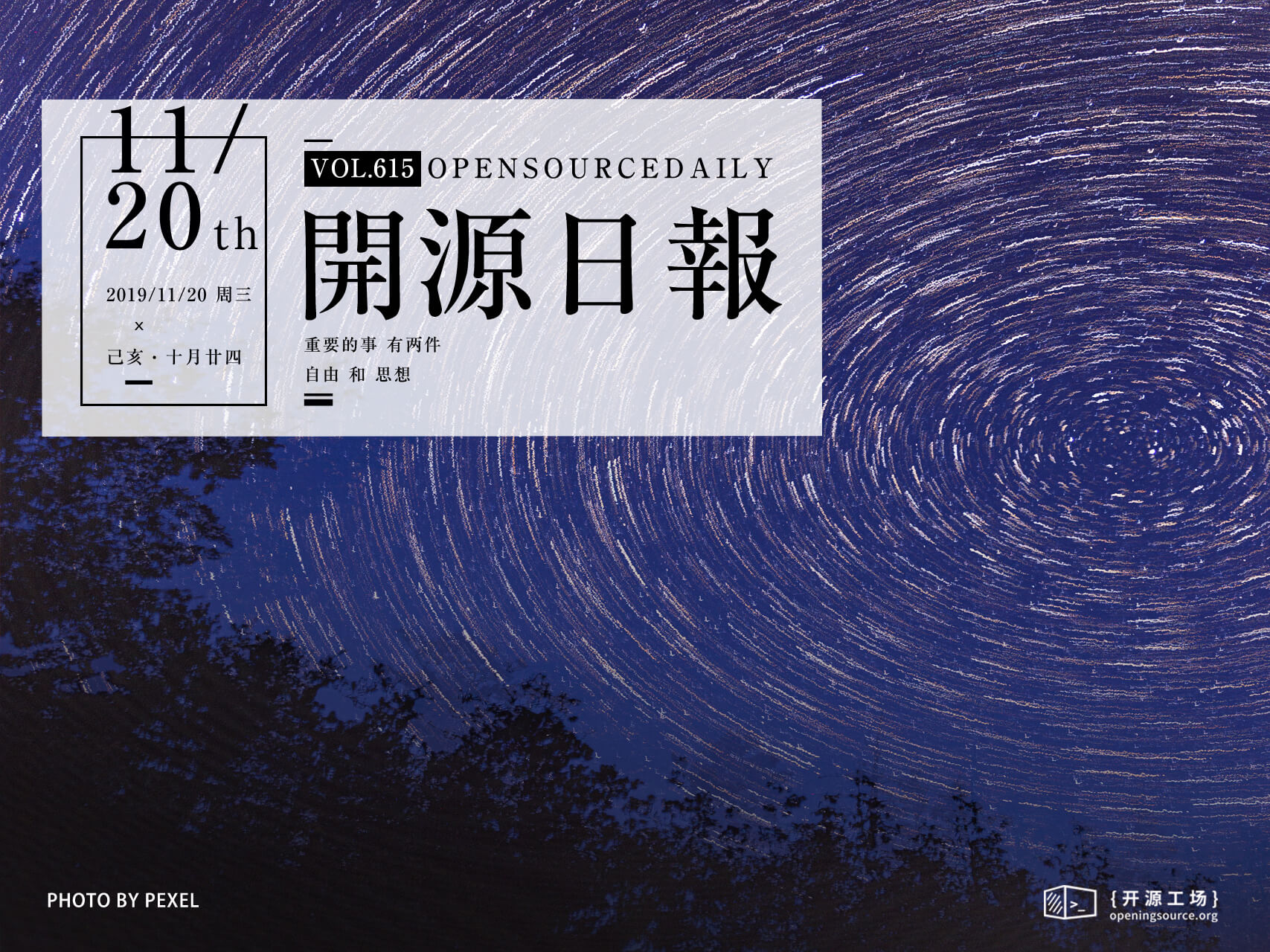今日推荐开源项目:《弹幕 DPlayer》
今日推荐英文原文:《Do You Have a Vulnerability Practice Daily?》

今日推荐开源项目:《弹幕 DPlayer》传送门:GitHub链接
推荐理由:所谓弹幕,即是在观看视频的某一刻有感而发写下的文字,而后人在同样的时刻能够读到这段文字正是它最大的魅力所在——可以在观看时快速的交换思想。这个项目是一个支持弹幕的视频播放器,听起来就和 B 站上面那个差不多,只不过使用范围更广了,同样是弹幕视频播放器它自然也可以通过 API 读取 B 站视频的弹幕并显示出来,毕竟比起一个人看视频有时候还是一群人看视频更热闹啊。
今日推荐英文原文:《Do You Have a Vulnerability Practice Daily?》作者:Jun Wu
原文链接:https://medium.com/@junwu_46652/do-you-have-a-vulnerability-practice-daily-eaa59d2b5c29
推荐理由:直截了当的说出想法同样需要勇气,特别是在你知道这会对自己不利时更为如此
Do You Have a Vulnerability Practice Daily?
Try it for a day and you may find deeper connections to people in the process.
I have a problem with vulnerability. Yes, I’m that girl at the front of the classroom answering every teacher’s questions. But, if you ask me when was the last time I confessed my intimate feelings to someone, I will tell you to f-ck-off. I can hang with the guys any day, mastermind, program, project-manage, whatever the business, I’m your ambitious, entrepreneurial woman. But, just don’t ask me to ask for help. Unless my heels are stuck in the cracks of the pavement, I won’t do it. It’s just not me.When a friend kindly suggested to me that I have a “vulnerability” problem, my response was, “I know.” I’ve known for years. To be precise, I’ve known this ever since I read “Daring Greatly”, by Brene Brown. Years later, even though the book is still on the must-read-over-and-over-again list of books on my bookshelf, I am still struggling to master the art of “vulnerability”.
“Courage starts with showing up and letting ourselves be seen.” — Brene BrownYou may think that spilling my guts writing personal essays on Medium is being “vulnerable”. Yes and no. It’s way too easy to hide behind the computer screen and write your intimate thoughts. I don’t have to see the faces of my readers. I don’t have to feel their hearts pulsating when they read this paragraph about my embarrassing past. I don’t have to even really respond to comments if I didn’t want to. These essays were written in my morning hours of inspiration.
Even though the experiences might have been raw, reflecting on the experiences to write these essays gave me closure. I didn’t write them to sink deeper into my feelings. I wrote them to put these feelings away. Instead of leaning into the myriad of feelings, I was trying to pivot to a place where I can have a fresh start: free from bad childhood memories, free from traumas from the workplace, free from awful past relationships. I was trying to strip away all of that gritty messy emotions because they made me feel vulnerable.
So, yes, I have a “vulnerability” problem. Being a problem-solver by nature, faced with this new problem of mine, all I want to do is to solve it.
If I was a self-help guru giving me advice, I’d tell myself that I needed a “vulnerability practice”. I need a 20 days trial period in which I instituted this practice into my daily life, it will give me a much-needed reminder to feel vulnerable, be vulnerable, and relate to people who are willing to be vulnerable with me.
The 1–2–3 Vulnerability Practice
At the heart of being vulnerable is honesty. Honesty implies authenticity. When someone asks you a question, do you answer this person honestly or do you explain things away, deflect, or switch the subject?“Because true belonging only happens when we present our authentic, imperfect selves to the world, our sense of belonging can never be greater than our level of self-acceptance.” — Brene BrownUsing unusually complicated methods to avoid answering questions is the tale-tell sign of your struggle with vulnerability. You are actively avoiding any scenarios where you might be wrong, might not know the answer, or simply does not want to reply.
Instead of responding with all of these complicated methods of avoidance, do you just say to the person, “I don’t know. I have no idea. I don’t want to. No!”
So really being vulnerable is so simple, it’s almost stupid.
- Notice your tendency to construct overly complicated scenarios in social situations.
- Stop! Be straight forward and honest about your experiences and responses.
- Bravely deal with the consequences whether they are good or bad.
Your manager asks you for the late work.
Instead of making up an excuse, you say, “I’m sorry, I was distracted. It will be on your desk by 5 pm today.”
Your spouse asks you to go to a work party you don’t want to go to.
Instead of making up an excuse, you say, “I don’t like to go to your work parties. If you need me there, I need to have some fun, too.”
Your child asks you to do work for them that they can do themselves.
Instead of doing it for them, you say, “I’m sorry. You can do it yourself. If you need help, then I will be there.”
Vulnerability is a gateway to sharing with empathy our thoughts and our feelings with people we are communicating with. People are not mind-readers. No one has time to figure out what you mean. Instead, just let people know what is on your mind.
“What we know matters but who we are matters more.” — Brene BrownEveryone’s different. But, we are all human. We can relate to each other’s experiences if we just communicated our feelings. An honest response will have a higher chance of receiving honest feedback. When you show up, own up, and speak up, how the world perceives you changes.
By knowing exactly who you are, the world can finally give you what you want: trust and acceptance.
下载开源日报APP:https://openingsource.org/2579/
加入我们:https://openingsource.org/about/join/
关注我们:https://openingsource.org/about/love/
